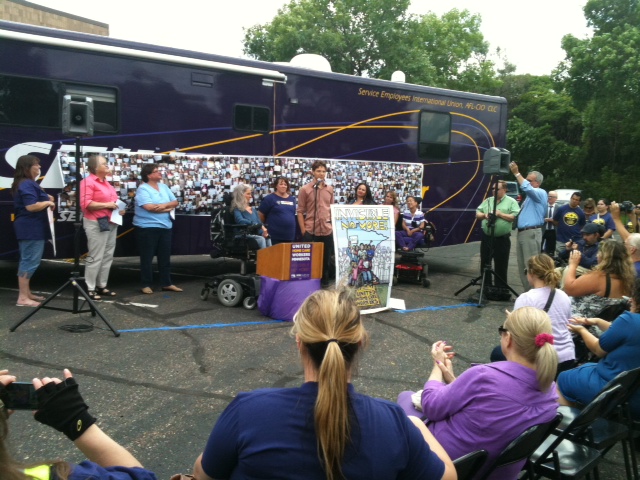

Share
Minnesota home health care workers seeking union representation survived a court challenge from opponents and are looking forward to ballots being counted Aug. 26.
On Wednesday (Aug. 20), U.S. District Judge Michael Davis refused a request by the National Right to Work Foundation that he issue an injunction to halt the vote, which is taking place by U.S. mail.
In a ruling, Davis called the request “premature,” clearing the way for ballots to be counted Aug. 26 in what will be the largest union election in Minnesota history.
The Minnesota Bureau of Mediation Services mailed ballots Aug. 1 to 26,000 eligible voters. They are defined as “personal care assistants and other home care workers providing direct support services through client-directed Medicaid programs including PCA Choice, Consumer Directed Community Supports (CDCS), and Consumer Support Grants.”
If a majority of those voting choose to unionize, they will be represented by SEIU Healthcare Minnesota, which currently is the union for more than 15,000 healthcare workers in hospitals, clinics and nursing homes throughout Minnesota. It is part of the Service Employees International Union, which has 1.2 million members in the health care industry nationwide.
Nine home health care workers, backed by the Right to Work Foundation, filed suit July 28 seeking an injunction to stop the union vote. They said their First Amendment rights were being violated.
Davis disagreed, saying “home-care providers have the right to vote in the current election to determine whether a majority desire SEIU to be their exclusive representative.” If SEIU is certified as the workers’ representative, the Right to Work Foundation may renew its court challenge, the judge said.
There is some question, however, whether the plaintiffs would have standing to bring a challenge. Following the U.S. Supreme Court’s recent Harris v. Quinn ruling, SEIU announced it would not seek to collect dues from home health care workers in Minnesota who choose not to become members.
Absent a requirement to pay dues, it may be difficult for any of the non-member workers to show they have been harmed.
Supporters of the union are elated the vote is proceeding.
Darleen Henry, a home health care worker in Rosemount, called the ruling “a big win” because the unionization effort will enhance care for people with disabilities by improving pay and working conditions and reducing turnover.

